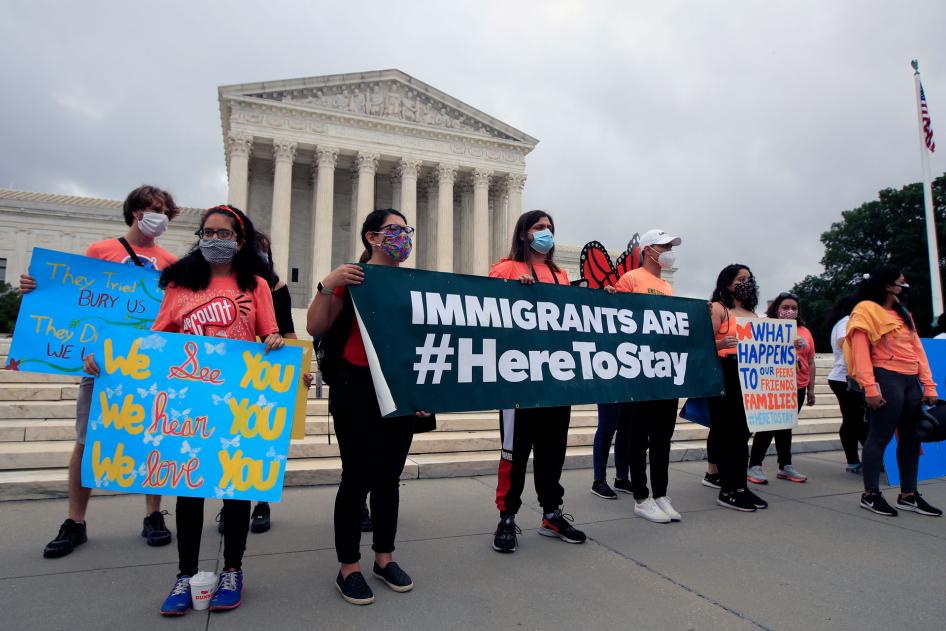President Biden has proposed a pathway to citizenship for the 11 million immigrants lacking documents in the United States. Opponents claim that this important humanitarian step would reward lawlessness and serve as an incentive for a new round of undocumented immigration. As a former federal prosecutor and the head of an organization dedicated to accountability for human rights violations, I find these fears unfounded. A program of broad legalization would be in keeping with the long-established concept of a statute of limitations in criminal law.
A statute of limitations precludes criminal prosecution after a set period of time. Other than for the most serious federal crimes, US law puts that limit at five years. That limit reflects the practical difficulties of collecting evidence and mounting a defense years after an alleged offense has occurred. It also reflects that it would be unfair to disrupt people’s lives long after they’ve allegedly committed an offense. The government is expected to address crimes within a reasonable time or to let things lie. No one seriously claims that this endpoint for criminal liability encourages more crimes.
Most deportations of immigrants involve civil rather than criminal proceedings, but similar equitable considerations come into play. Indeed, most civil claims in the United States also face a statute of limitations. Although proof of an immigrant’s undocumented status is usually straightforward, the human consequences of deportation after the passage of years can be enormous.
The American public recognizes these humanitarian concerns in its broad, bipartisan support for legalizing the status of 700,000 “Dreamers” — those brought to the United States as children who have essentially grown up as Americans. To deport them would be to send them to a foreign country that they barely know, if at all.
Humanitarian concerns arise as well for others who have been in the United States for years. The Pew Research Center’s analysis of government data shows that two-thirds of the adults among those who are in the US without authorization have been here for a decade or more.
The center of these people’s lives has shifted to the United States, as the Migration Policy Institute’s profile of the population shows. They have 4 million US-born children, meaning that if they were deported their American children would either be separated from a parent or forced to grow up outside the United States. One and a half million are married to US citizens, who in the case of deportation would have to live apart from their spouses or move abroad so they could stay together.
Even leaving aside the impact on family members, these immigrants are important members of our communities. More than 3 million own their homes. They represent 5 percent of the US workforce. In short, a large number of them have become Americans in all but the papers they carry.
Yes, the United States has an interest in protecting its borders and enforcing its immigration laws, but at some point that interest should give way to the considerable humanitarian interest in not destroying the American lives that immigrants have built.
All Americans have benefited from their presence, particularly the major role that many play as essential workers during the pandemic even as they have been hit hard by the virus. It is wrong to profit from their contributions and sacrifices without at some point giving them in return legal stability in their lives — a pathway to citizenship.
Regularizing their status would bring important benefits for everyone. For example, the fear of deportation would be eliminated as a barrier to seeking healthcare, such as getting tested for the coronavirus or getting vaccinated. Everyone needs to be included if we are to successfully combat the virus. Similarly, legalized immigrants do not need to fear deportation as retaliation if they report abuses at work. That can improve conditions for all workers.
A legalization program should be broad and inclusive. Given extensive evidence of racial and economic injustice within the criminal legal system, and the criminalization of minor offenses such as drug possession or driving without a license, it would be wrong to automatically deem some ineligible because of a criminal record. They should be given the opportunity to provide evidence of long-term residence in the United States, family ties, rehabilitation and other factors in their favor.
Congress should enact some version of the president’s proposed law offering legalization and a deportation statute of limitations for long-term residents. That is the least that we as a nation of immigrants can do for these established members of our communities.
But if Congress fails to act, Biden should proceed by executive order and, given limited resources, exclude long-term residents from enforcement priorities. A statute-of-limitations rationale should help the president overcome any judicial challenge based on an alleged lack of reasonable justification. Halting deportations may just kick the problem down the road, but at some point, the unfairness of deporting these all-but-Americans will be impossible to ignore.










